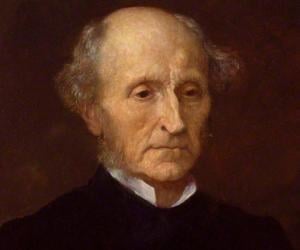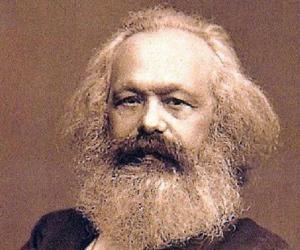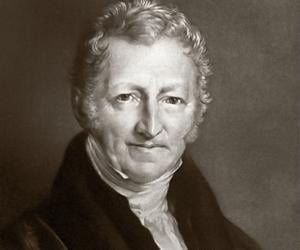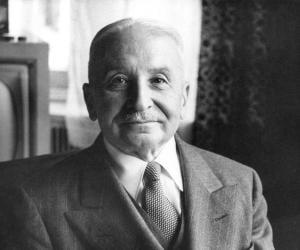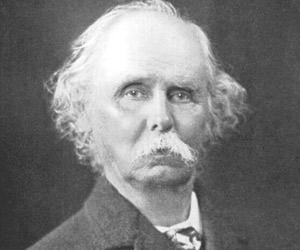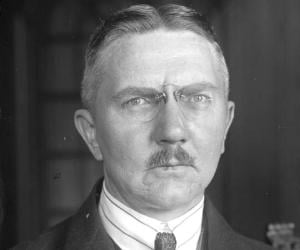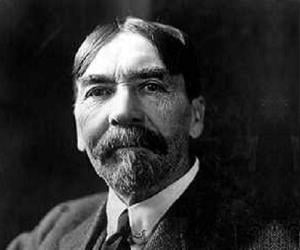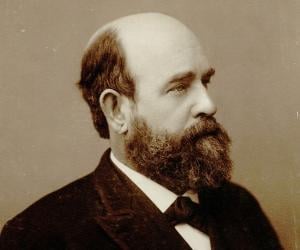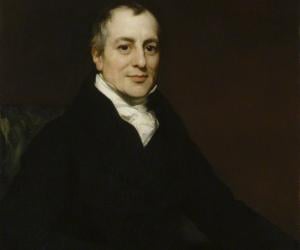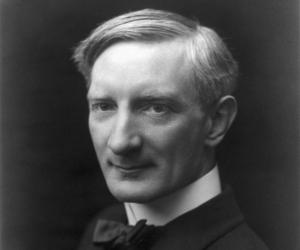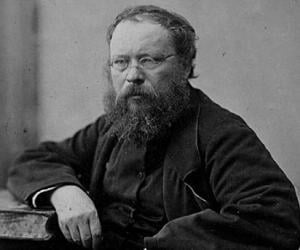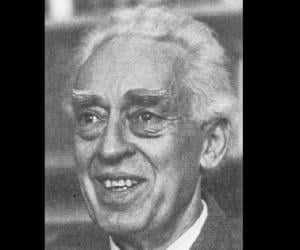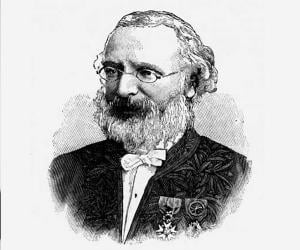Karl Marx, the philosopher, economist, political theorist and socialist revolutionary, is best-known for the 1848 pamphlet, The Communist Manifesto and the three-volume Das Kapital. His theories, called Marxism, maintained that class conflict leads to the development of human societies and that internal tension were inherent in capitalism, which would ultimately be replaced by the socialist mode of production.
Thomas Robert Malthus was an English economist and demographer, who viewed poverty as man’s unavoidable destiny. Author of An Essay on the Principle of Population; he believed that increase in national food production results in feeling of well-being, leading to population growth, which in turn results in poverty. Commonly referred as Malthusianism, it made immediate impact on British social policy.
One of the co-founders of the English neoclassical school of economics, 19th-century economist Alfred Marshall is best remembered for his path-breaking book Principles of Economics. His studies on topics such as marginal utility, consumer’s surplus, and the elasticity of demand, enriched the field of economics for years to come.
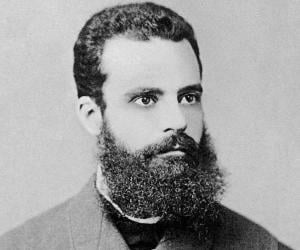
A qualified civil engineer, Vilfredo Pareto had initially worked for the railways and the ironworks. However, he gradually deviated to philosophy, sociology, and politics and gained fame for his application of math to economic issues and his introduction of Pareto efficiency. Mind and Society remains his best-known work.
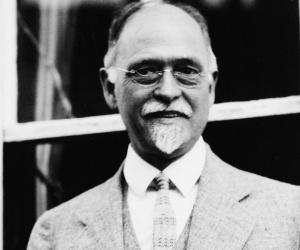
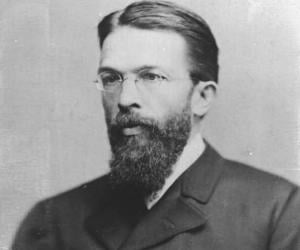
Carl Menger made significant contributions to the marginal utility theory and the subjective theory of value. Born to a lawyer father, he too studied law and also worked as a journalist for a while. He later taught at the University of Vienna and also established the Austrian School of economics.
German banker Hjalmar Schacht was appreciated for his role in saving the Weimar Republic from inflation and later served as the Reichsminister of Economics under Adolf Hitler. Following as assassination attempt on Hitler, her was imprisoned, but was later freed and then set up his own bank in Düsseldorf.
Henry George was a political economist and journalist. His work was very popular during the Progressive Era and sparked many reform movements. The economic philosophy known as Georgism is inspired by him. His book Progress and Poverty, considered his magnum opus, sold millions of copies worldwide. He was a vocal advocate for women's political rights.

A pioneer of the mathematical method in economics, William Stanley Jevons was the son of an iron merchant and economic enthusiast. Remembered for his studies on marginal utility and supply/demand, he penned the iconic work A General Mathematical Theory of Political Economy and also wrote on Britain’s depleting coal supplies.
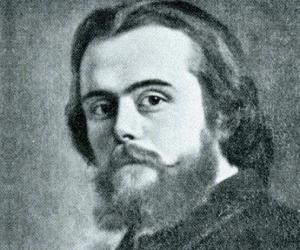
Léon Walras was a French mathematical economist and Georgist. He is known for formulating the marginal theory of value independently of William Stanley Jevons. Considered a pioneer in the development of general equilibrium theory, he authored the book Éléments d'économie politique pure. He is also considered one of the three leaders of the marginalist revolution.
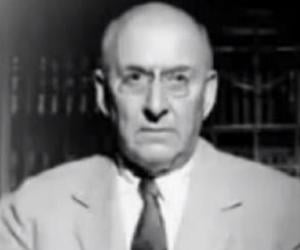
Born to a British civil servant in British India, William Beveridge was educated at Oxford. While he initially excelled in math and classics, he later studied law. A leading economist, he created the Beveridge Report, which formulated the welfare state policies in the U.K. after World War II.
Often referred to as the Father of Anarchism, Pierre-Joseph Proudhon was born to a tavern keeper and grew up working on farms. Largely educated on scholarships, he later became known for his slogan “Property is theft!” and his idea of mutualism. His notable works include What is Property?
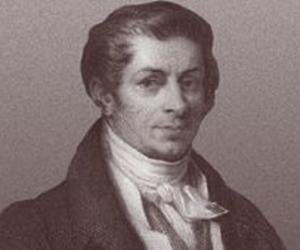
French economist Jean-Baptiste Say supported free trade and competition. Scholars of economics know him for his law of markets, which states that supply creates its own demand. He had experimented with many jobs, from being a journalist to owning a cotton mill, and eventually became an economics professor.
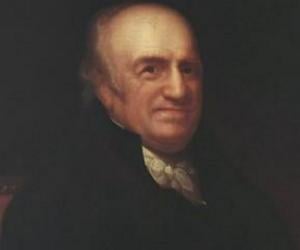
Pierre Samuel du Pont de Nemours was a French-American writer and economist. An ambitious man, he served as French inspector general of commerce under Louis XVI. He moved to America during the French Revolution and was later elected a member of the American Philosophical Society. His son Éleuthère Irénée du Pont founded E. I. du Pont de Nemours and Company.
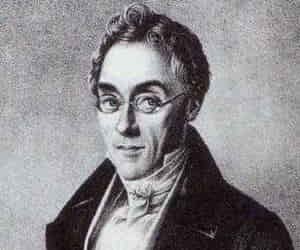
German-American economist Friedrich List is remembered as one of the pioneers of the historical school of economics. He supported tariffs on imported goods to help the domestic market. He is also known for his pamphlet Outlines of American Political Economy and his book The National System of Political Economy.
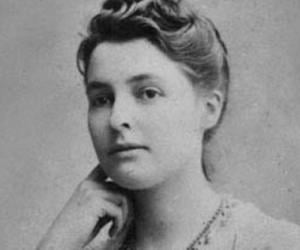
Sociologist Beatrice Webb is best remembered for coining the term collective bargaining. Along with her husband, Sidney Webb, whom she met at the Fabian Society, and others, Beatrice co-founded the London School of Economics. In spite of her lack of formal education, she was a prominent educator and an avid diarist.
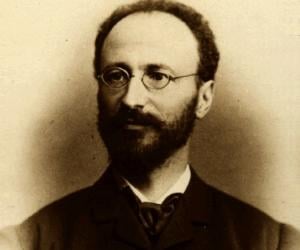
A major advocate of the Austrian school of economics, Eugen von Böhm-Bawerk made major reforms as part of the Austrian ministry of finance, such as imposition of the gold standard. He was also one of the first to oppose Karl Marx’s theory of exploitation of workers.
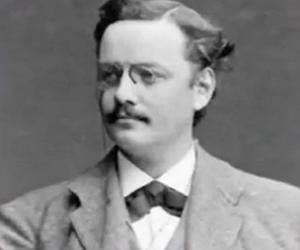
A prominent name in the field of economics, Knut Wicksell was a Swedish economist known for his pioneering work in monetary theory. His work has influenced numerous economists like James M. Buchanan and John Maynard Keynes and various economic schools of thought like Keynesian and Austrian school. During his career, he also worked as a professor at the Lund University.
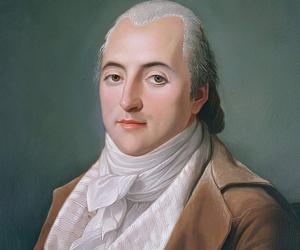
Henri de Saint-Simon was a French political, economic, and socialist theorist and businessman. His ideology was the inspiration behind the political and economic movement known as Saint-Simonianism. He left a major influence in the fields of politics, economics, sociology, and philosophy of science. His ideas also inspired and influenced the concept of utopian socialism.
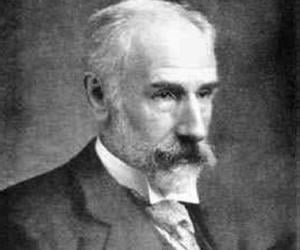
Francis Ysidro Edgeworth was an Anglo-Irish economist and statistician, known for his significant contributions to the methods of statistics. An autodidact in mathematics and economics, he imaginatively applied mathematics to the fields of economics and statistics, writing several books, including Mathematical Psychics, presenting new ideas on various topics like on the generalized utility function, the indifference curve etc. .
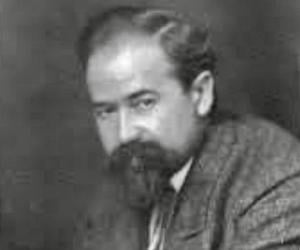
Alfred Weber was a German geographer, sociologist, economist, and theoretician of culture. Weber's work and contribution played a key role in the progression of modern economic geography. The younger brother of Max Weber, Alfred Weber contributed theories for analyzing social processes, social change as a confluence of civilization, and culture.
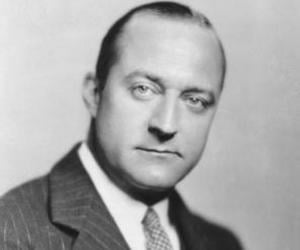
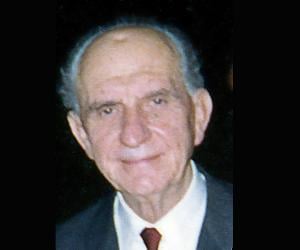
Georgios Papandreou was a Greek politician who served as the Prime Minister of Greece on three occasions between 1944 and 1965. Papandreou, whose illustrious political career spanned over 50 years, is also credited with founding the Papandreou political dynasty. Georgios Papandreou was also counted among the best orators in Greece.
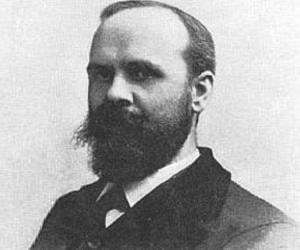
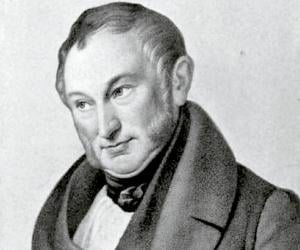
Johann Heinrich von Thünen was a German economist best remembered for his two-volume treatise The Isolated State. An influential and important 19th-century economist, Thünen is also credited with popularizing Location theory, which has become an important part of regional science, economic geography, and spatial economics.
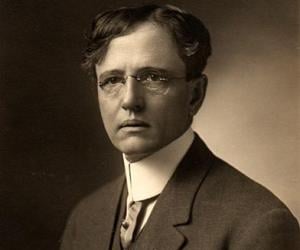
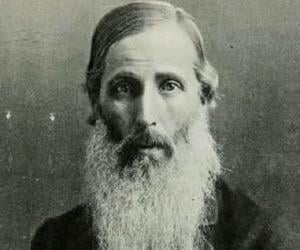
An influential English ethical philosopher and economist of the Victorian era, Henry Sidgwick is perhaps best known for his utilitarian treatise The Methods of Ethics. He promoted higher education of women and co-founded Newnham College. He remained a member of the Metaphysical Society and co-founded and served as first president of the Society for Psychical Research.
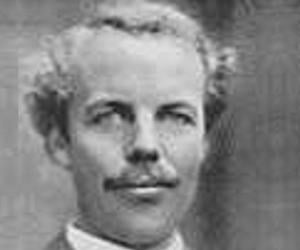
One of Alfred Marshall’s favorite students, Arthur Cecil Pigou was initially a history scholar at King's College but later deviated to economics. One of the most significant figures of neoclassical economics, he specialized in welfare economics and penned pathbreaking works such as The Economics of Welfare.

Ferdinand Tönnies was a German economist, sociologist, and philosopher. He is credited with co-founding the German Society for Sociology where he served as the president from 1909 to 1933. Widely regarded as the first prominent German sociologist, Tönnies contributed significantly to field studies and sociological theory. Ferdinand Tönnies is often counted among the founders of classical German sociology.

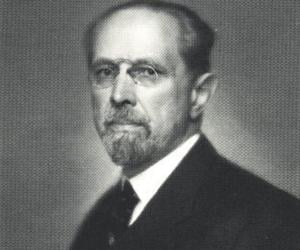
Werner Sombart was a German sociologist and economist. He was one of the 20th century's most important Continental European social scientists who served as the leader of the Youngest Historical School. Werner Sombart is credited with coining the phrase late capitalism. He is also remembered for his magnum opus, Der moderne Kapitalismus.
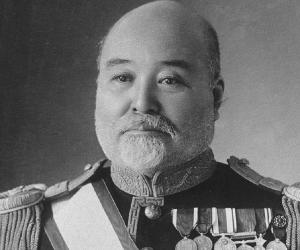
Born an illegitimate son of an official painter of the shogunate, Takahashi Korekiyo was later adopted by a samurai. He went to the U.S. and worked there for a while, before returning to Japan. He eventually stepped into politics and later became the prime minister of Japan.
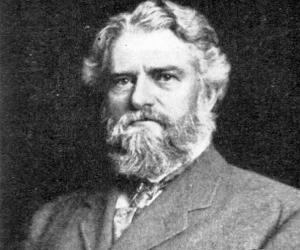
Initially a herbalist’s apprentice, Simon Newcomb later deviated to mathematics and astronomy. Born to a schoolteacher, he had loved math since age 5 but wasn’t formally educated. He later joined Harvard University, taught math at the US Navy, detected locations of celestial bodies, and wrote a science-fiction novel, too.
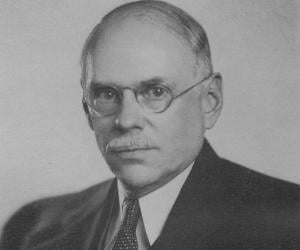
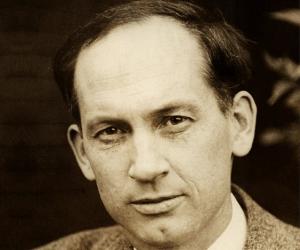
Born into a farming community, Harold Innis was encouraged to be a Baptist minister but became a political economist and academic instead. The former University of Toronto professor is remembered for his work on the staple thesis. He had also fought on the front lines in World War I.
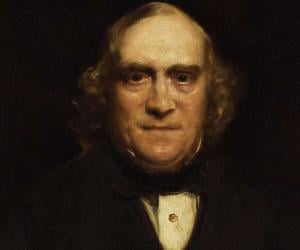
Born to a hat manufacturer, James Wilson initially wished to study law but later joined his father’s business. Over the years, he established what is now the Standard Chartered Bank. Sent to Kolkata by Queen Victoria to introduce tax reforms, he introduced paper currency in the country, but died of dysentery.
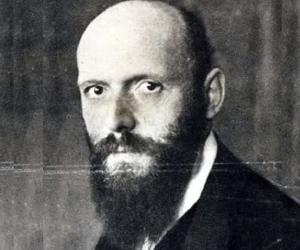
Otto Neurath was an Austrian-born philosopher of science, political economist, and sociologist. He is known for inventing the ISOTYPE method of pictorial statistics. A native of Vienna, he was one of the leading figures of the Vienna Circle. As an economist, he advocated for ideas like "in-kind" economic accounting in place of monetary accounting.
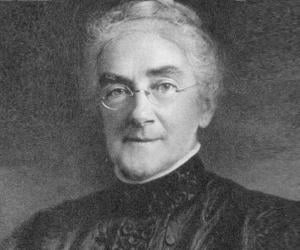
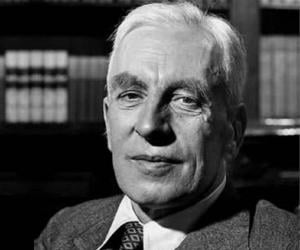
The son of a surgeon, economist Arnold Toynbee studied at Balliol College and later taught there, too. He was a prominent social reformer who spoke for the working class and supported trade unions. Unfortunately, he died of exhaustion and breakdown after being overworked. Toynbee Hall was named after him.
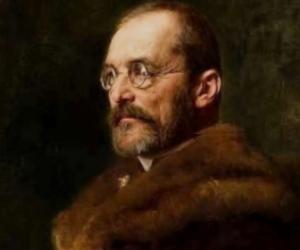
Not only did István Tisza serve as the Hungarian prime minister, but he also supported the Austro-Hungarian dualist government. A qualified lawyer, he also had doctorate degrees in economics and political science and also dealt with macroeconomic issues. His father, Kálmán Tisza, too, had been the prime minister of Hungary.
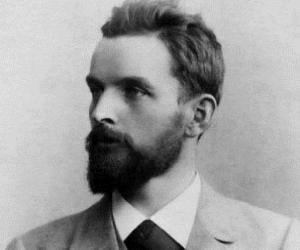
Silvio Gesell was a German-Argentine theoretical economist, merchant, Georgist, social activist, libertarian socialist, anarchist, and founder of Freiwirtschaft. He is also credited with founding a magazine named Monetary and Land Reform which was closed soon after its establishment for financial reasons. Silvio Gesell is also credited with co-creating the magazine Der Physiokrat.
Frédéric Passy was a French pacifist and economist. He is credited with co-founding the Inter-Parliamentary Union as well as many peace societies, such as the Société Française pour l'Arbitrage entre Nations. He is best known for his involvement in the European peace movement, for which he received the prestigious Nobel Peace Prize in 1901.
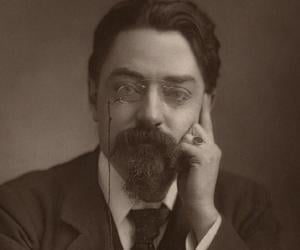
Born to a lower-middle-class family, economist Sidney Webb, 1st Baron Passfield had quit school before 16 but later attended evening classes to clear both the civil service and bar exams. He and his wife, Beatrice Webb, were both part of the Fabian Society and co-founded the London School of Economics.
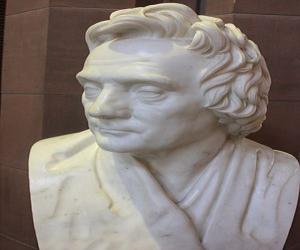
Scottish Presbyterian minister and political economist Thomas Chalmers has been immortalized by the town of Port Chalmers in New Zealand, named after him. An ordained minister, he was initially a math lecturer. He later became the Free Church of Scotland’s first moderator. He tried applying Christian ethics to economic problems.
